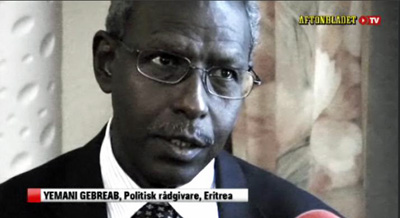
Eritrean official says jailed journalists were security threat
Since a week after September 11, 2001, when the government of Eritrea threw into secret prisons journalists from its once-vibrant private press, the only certainty it has offered about the fate of the prisoners has been ambiguity. Over the years, officials have offered various explanations for the arrests—from nebulous anti-state conspiracies involving foreign intelligence to press law violations. They have…
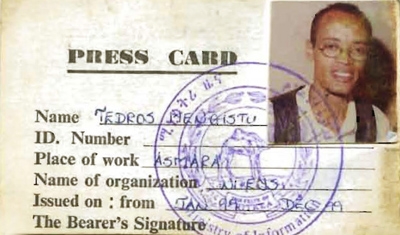
For Eritrean expatriate press, intimidation in exile
For the better part of the last 20 years, Tedros Menghistu has been a refugee, forced to flee his Red Sea homeland of Eritrea not once, but twice—first as a young man displaced by war in the early 1990s, and then as a professional journalist escaping political censorship and military conscription a decade later. Menghistu is also…
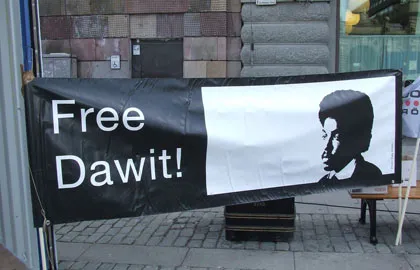
Reluctant activist: A brother’s struggle to free Dawit Isaac
In 2001, Eritrean security forces imprisoned Eritrean-Swedish journalist Dawit Isaac along with nine other journalists without trial in September 2001. The arrests effectively shut down the nation’s fledgling independent press and any potential political dissent prior to scheduled December 2001 elections, which were subsequently cancelled. To this day, Dawit is believed to be held incommunicado…

Exiled Eritrean editor reunites with family
Eight years ago, Aaron Berhane left his wife and three children behind as he fled his native Eritrea, a fugitive wanted by authorities because his newspaper had dared criticize the government of revered independence leader Isaias Afewerki. In May 2009, Berhane’s family managed to escape to Sudan. This month, at last, they joined him in…

Dawit Isaac: Jailed 3,127 days in Eritrea without trial
Journalist Dawit Isaac has spent 3,127 days in government custody in his native Eritrea, according to the ticker on FreeDawit, a Web site based in Sweden, Isaac’s adopted country, where he is a citizen. He has never been publicly charged with a crime or been given a trial. A thorny issue between Sweden and the…

Truth about jailed journalists is locked away in Eritrea
In the reclusive Red Sea nation of Eritrea, the fate of 10 journalists who disappeared in secret prisons following a September 2001 government crackdown has been a virtual state secret—only occasionally pierced by shreds of often unverifiable, secondhand information smuggled out of the country by defectors or others fleeing into exile.
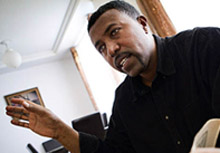
September 18, 2001, in Eritrea: A memory that never fades
It feels like it happened just yesterday. It was 7 a.m. on an average day in September in Asmara, Eritrea. My brain was still reshuffling the information I had gathered about the terrorist attacks on the World Trade Center a week earlier. I was writing an article on it for the next issue of Setit,…

Press, politics at center of Eritrean mock trial
Articles published in Eritrea’s now-banned private newspapers are at the center of a mock political trial being filmed as an educational documentary this week at Sandra Day O’Connor College of Law at Arizona State University. Inside a courtroom on the sprawling Tempe, Ariz., campus, a judge of the High Court of Eritrea presides dispassionately, international observers lean into translation…
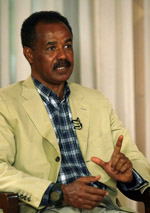
Eritrean president slams ‘CIA-financed’ media
Last week, President Isaias Afeworki of Eritrea, Africa’s leading jailer of journalists, discussed press freedom during an extensive interview with Swedish broadcaster TV4. Afeworki, a revered guerrilla commander who led this Red Sea country to nationhood in 1993, banned Eritrea’s budding private media in 2001 and threw journalists in secret prisons without charge or trial.…

What’s become of the people in this photo?
This week, as CPJ finalized its annual list of journalists imprisoned for their work, my thoughts turned to Eritrea and this photo. Taken in 2000, near the end of a two-year border war with neighboring Ethiopia and during the heyday of a burgeoning private press movement in Africa’s youngest nation, the photo shows the staff…